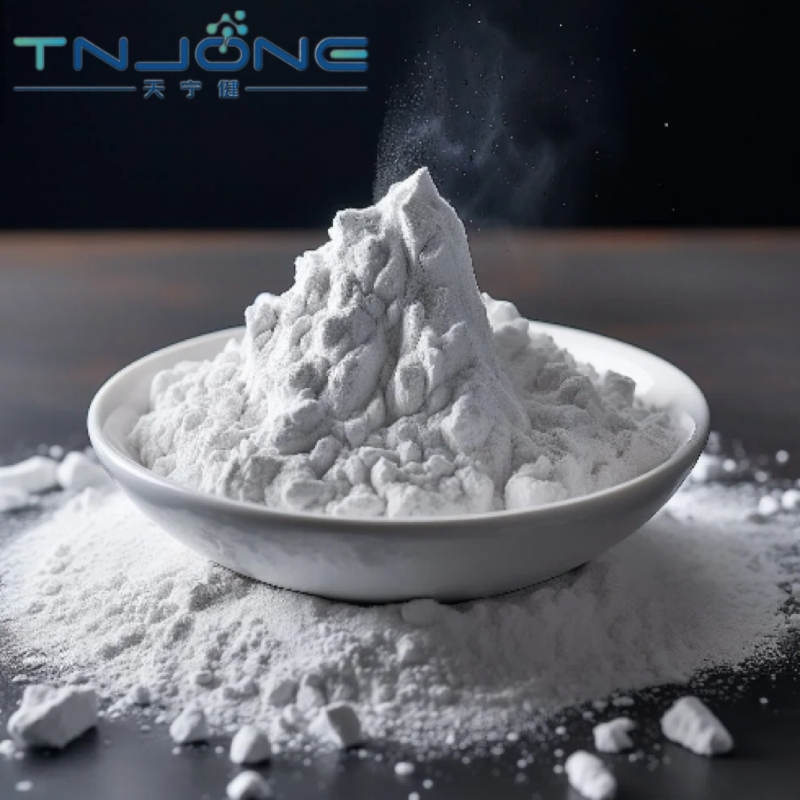-
Categories
-
Pharmaceutical Intermediates
-
Active Pharmaceutical Ingredients
-
Food Additives
- Industrial Coatings
- Agrochemicals
- Dyes and Pigments
- Surfactant
- Flavors and Fragrances
- Chemical Reagents
- Catalyst and Auxiliary
- Natural Products
- Inorganic Chemistry
-
Organic Chemistry
-
Biochemical Engineering
- Analytical Chemistry
-
Cosmetic Ingredient
- Water Treatment Chemical
-
Pharmaceutical Intermediates
Promotion
ECHEMI Mall
Wholesale
Weekly Price
Exhibition
News
-
Trade Service
Pharmaceutical grade ethyl paraben, pharmaceutical excipients, bacteriostatic agent, paraben (English: Paraben) is a kind of preservative used in cosmetics and pharmaceutical industries, and is sometimes used in food additives.
Its salt and compounds were originally used as bactericides and fungicides
.
Such compounds can be found in shampoos, commercial body creams, shaving creams, body lubricants, topical medicines, spray solvents, cosmetics and toothpaste
.
Such compounds are so common because they are effective and low-cost preservatives and have a history of use, while natural alternatives such as grapefruit seed extract are not as effective
.
However, their use has become increasingly controversial as they have been found in breast cancer tumors (an average of 20 nanograms per gram of tissue)
.
They exhibit estrogen-mimicking effects and may therefore be involved in the development of breast cancer
.
Nonetheless, a direct link between them and breast cancer has not yet been proven
.
In addition, their estrogen-mimicking properties may make early puberty more common in girls
.
[1] Naturally some parabens are present in plants, such as methyl paraben in blueberries, as their antimicrobial agent
.
[2] Synthetic parabens can be prepared by esterification of parabens with appropriate alcohols such as methanol, ethanol, and 1-propanol
.
Para-hydroxybenzoic acid can be produced by the Kolbe-Schmidt reaction with potassium phenate and carbon dioxide
.
[3] Toxicological studies of acute, subchronic, and chronic reactions in rodents indicate that parabens are virtually non-toxic and are rapidly absorbed, metabolized, and then excreted
.
Its main metabolites are p-hydroxybenzoic acid, p-hydroxy hippuric acid, p-hydroxybenzyl glucuronate and p-carbonylphenyl sulfate
.
[2] Allergic reactions Parabens are not irritating and sensitive to most parts of people with normal skin, but can irritate or even cause skin irritation in a small number of people with paraben allergies inflammation and rosacea
Its salt and compounds were originally used as bactericides and fungicides
.
Such compounds can be found in shampoos, commercial body creams, shaving creams, body lubricants, topical medicines, spray solvents, cosmetics and toothpaste
.
Such compounds are so common because they are effective and low-cost preservatives and have a history of use, while natural alternatives such as grapefruit seed extract are not as effective
.
However, their use has become increasingly controversial as they have been found in breast cancer tumors (an average of 20 nanograms per gram of tissue)
.
They exhibit estrogen-mimicking effects and may therefore be involved in the development of breast cancer
.
Nonetheless, a direct link between them and breast cancer has not yet been proven
.
In addition, their estrogen-mimicking properties may make early puberty more common in girls
.
[1] Naturally some parabens are present in plants, such as methyl paraben in blueberries, as their antimicrobial agent
.
[2] Synthetic parabens can be prepared by esterification of parabens with appropriate alcohols such as methanol, ethanol, and 1-propanol
.
Para-hydroxybenzoic acid can be produced by the Kolbe-Schmidt reaction with potassium phenate and carbon dioxide
.
[3] Toxicological studies of acute, subchronic, and chronic reactions in rodents indicate that parabens are virtually non-toxic and are rapidly absorbed, metabolized, and then excreted
.
Its main metabolites are p-hydroxybenzoic acid, p-hydroxy hippuric acid, p-hydroxybenzyl glucuronate and p-carbonylphenyl sulfate
.
[2] Allergic reactions Parabens are not irritating and sensitive to most parts of people with normal skin, but can irritate or even cause skin irritation in a small number of people with paraben allergies inflammation and rosacea







